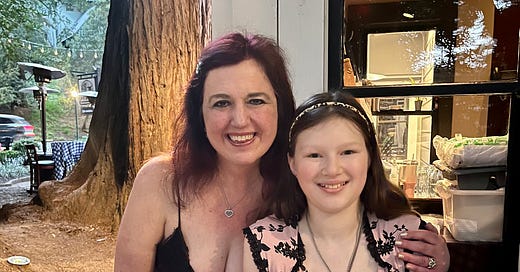The ethics of being a spy
or as Julien says "Spies can be good people. Not claiming I am myself."
I first gravitated to the Regency/Napoleonic era through my love of Jane Austen and Georgette Heyer. But I also love spy stories, both James Bond adventure and the sort of intricate chess games and moral dilemmas John le Carré dramatizes so brilliantly. The Napoleonic Wars and their aftermath offer a wonderfully rich setting for both types of story. So many different sides, so many different factions within sides. The French under Napoleon had been bent on conquest, but they had also brought much-needed reforms to many countries. Some liberal Spaniards saw supporting the French in the Peninsular War as the quickest route to progressive reform. And after the Napoleonic Wars, a number of the victors wanted to turn the clock back to before the French Revolution and saw any hint of reform as one step away from blood in the streets.
Meanwhile, as we see in The Seven Dials Affair, Spanish colonies in South America seized on the chaos in Europe to break away and become independent countries. And despite the British government’s antipathy to revolution in Europe, the commercial advantages of trade with South America led them to back the revolutionary governments with loans, supplies, and arms. Even when the Bourbons were restored in Spain and the treaty of alliance with Britain forbade the British from arming and supplying what Spain considered rebel colonies, the British were secretly funneling arms to insurrectionary governments.
In this atmosphere, friends easily melt into enemies and back again. Napoleon’s longtime foreign minister Prince Talleyrand later became prime minister under the Bourbon restoration. Joseph Fouché who had been ruthless in using terror against enemies of the Bonapartist government, was equally ruthless in going after Napoleon’s supporters who were proscribed from the amnesty after Waterloo. In the midst of these shifting alliances, a love affair can have political consequences, a tactical decision can shatter a friendship, it can come down to a question not of whether or not commit betrayal but only of who or what to betray.
Most of the central characters in the series have been spies (and most reluctantly accept that they can’t really leave the intelligence game). In The Seven Dials Affair, Kitty and Julien in particular wrestle with past choices they made as agents that ripple into the present.
As Julien, who doesn’t dance round things, puts it
Well, for that matter, this was my mission. Not yours. It's not a good practice to share information about a mission just because one happens to be sleeping with someone. In fact, it's distinctly shoddy spycraft.
I’ve always been fascinated by moral dilemmas. And I’m intrigued by how romantic fidelity and betrayal can parallel other types of fidelity and betrayal (whether between husbands and wives or in their relationship with other characters or with a country or cause). I like writing stories of intrigue set in tumultuous times, but I think in those sorts of times (probably always but in those times more than ever) choices don’t tend to come down to easy, clear-questions of right and wrong. It’s interesting to see how characters wrestle with those issues and how the personal and the political intertwine. The possibility that a loved one or friend isn’t who you thought they were is perhaps one of our deepest fears in a relationship. And yet most of us are somewhat different people in different aspects of our lives and have different loyalties – to spouses, children, lovers, friends, causes, countries, work. Sometimes it isn’t so much a question of betrayal as of deciding which loyalty comes first. It’s not so far from the seemingly lofty sentiment of I could not love thee, dear, so much, Lov’d I not Honour more to betraying a lover for a cause.
Or so Mélanie Rannoch might argue. Her husband Malcolm might have more difficulty with the idea. He takes personal loyalties very seriously, though he was the one who went off to the field at Waterloo and risked himself (though he wasn't a soldier) leaving his wife and son behind in Brussels. In the midst of the carnage, he wondered which loyalty he should have put first. While Mélanie, for different reasons, was wondering much the same thing. It's a question that continues to haunt both of them in the series and to fascinate me as a writer.
Perhaps I should leave the last word to Julien. Of course the retort from several of the other characters would be “define good.”
What are some of your favorite spy characters?








One of my favorite spy series is Joanna Bourne's Spymasters. Her romantic protagonists, who are spies on opposing sides, have to deal with the fact that the British monarchy--the king supposedly ordained by God--is mad, and his son is a self-absorbed aging, spendthrift fribble. That's the form of government they're fighting for? On the French side, the "Republic" has devolved into rule by a bloodthirsty despot who might well be conquering Europe, but he's gutting France to do it. That's what liberty, equality and fraternity are supposed to look like?
So both sides have to become disillusioned with the whole premise behind their spying, and that only leaves.... love conquering all. But those are romances, so that solution works.
And oldie but goodie that isn't a spy novel per se, but a romance set during the Reign of Terror is Angel in a Red Dress, by Judith Ivory. Our hero is an English aristocrat who dedicates himself to getting French aristos to safety, even as he supports republican values. He's run by a spymaster who ultimately tries to destroy him.
So many Regency romances stick with the Netherfield Ball approach to the era, and I absolutely love that your spy novels illuminate a much more realistic version of the period.